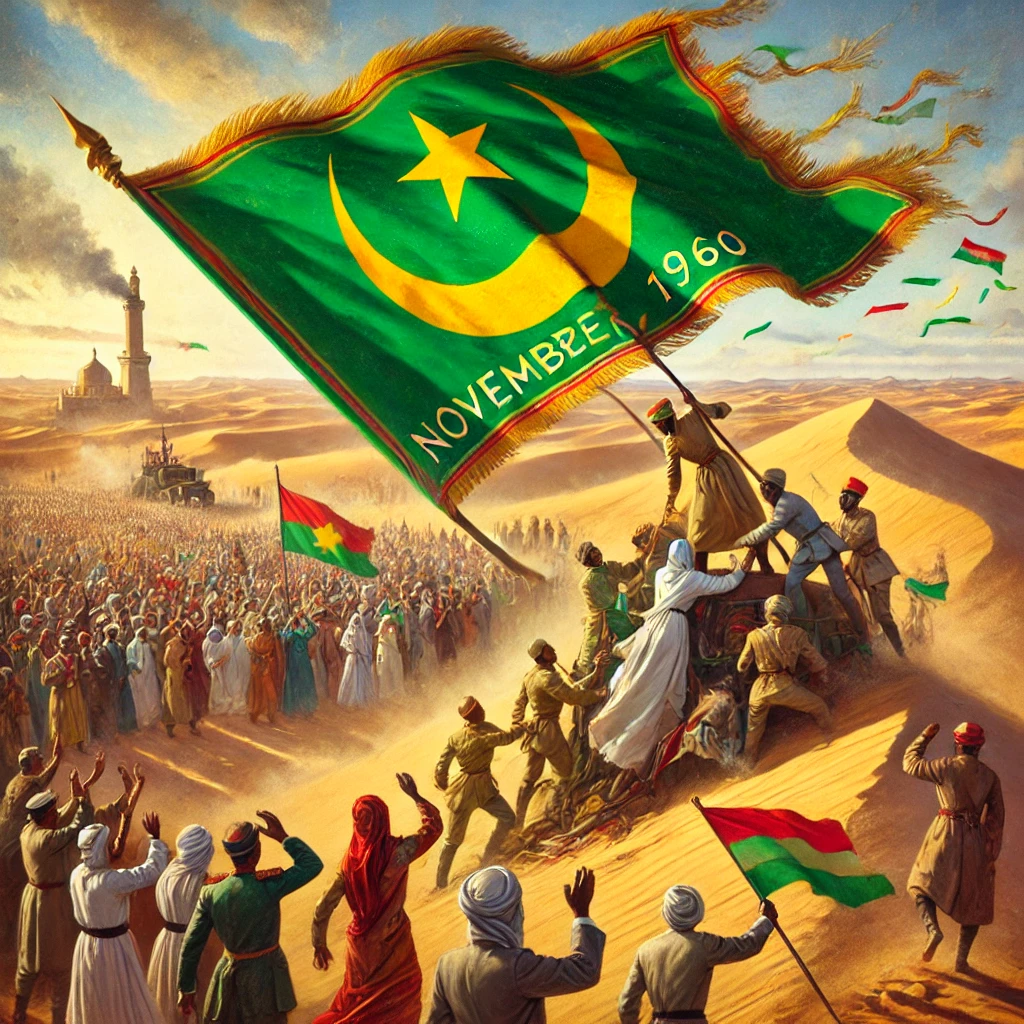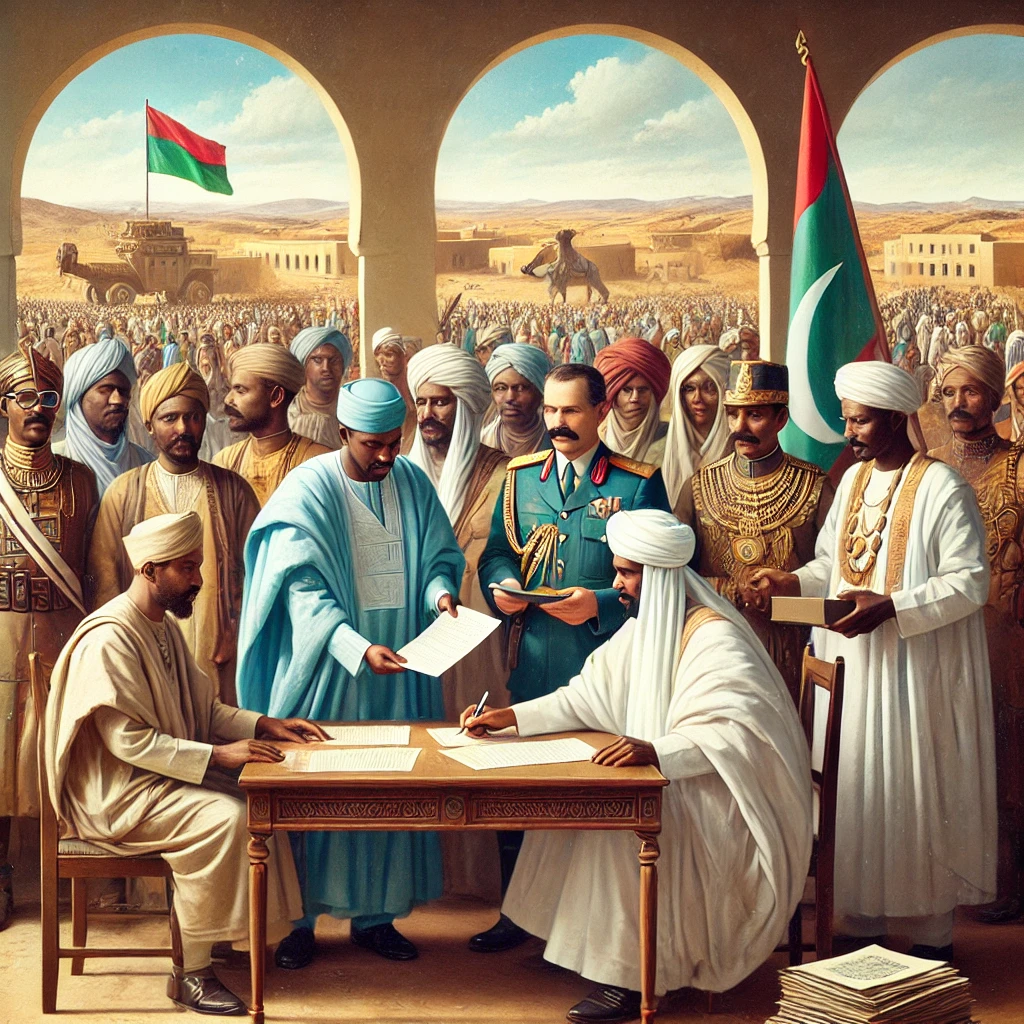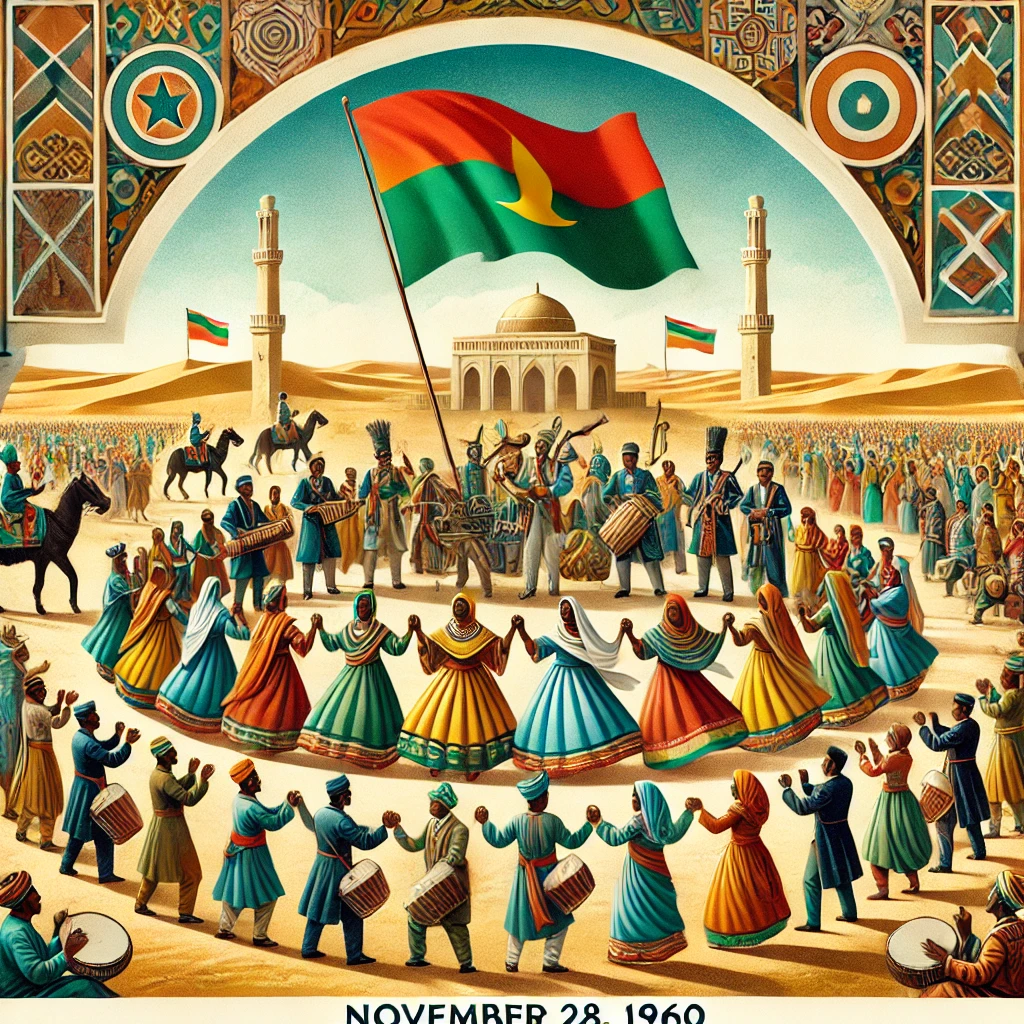November 28, 1960, marked a historic milestone as Mauritania declared its independence from French colonial rule. Located in West Africa, Mauritania had been under French control since the late 19th century. Independence came as part of a larger wave of decolonization across Africa during the mid-20th century, spurred by growing demands for self-determination and sovereignty. Mauritania’s independence symbolized the nation’s resilience and the people’s determination to chart their own course.

Following independence, Moktar Ould Daddah became the country’s first president. His administration sought to unify Mauritania’s diverse population, which included Arab-Berber communities and Black African ethnic groups. This period was pivotal in establishing the foundations of the nation, as leaders sought to define Mauritania’s identity, policies, and role on the global stage.
Challenges in Building a Nation
Emerging as an independent country was not without challenges. Mauritania faced significant political, economic, and social hurdles. The nation’s geographic location, straddling the Arab Maghreb and sub-Saharan Africa, presented complexities in forging a unified national identity. Tensions between ethnic and cultural groups, exacerbated by historical inequalities, have shaped the country’s political landscape.
Economically, Mauritania inherited limited infrastructure and depended heavily on agriculture and mining. The government prioritized resource development, particularly in iron ore, as a means to boost the economy. However, economic disparity and limited access to education and healthcare for many citizens slowed progress. Over time, efforts have been made to address these issues, but challenges remain.

Legacy and Modern Relevance
The legacy of Mauritania’s independence resonates strongly today. Gaining sovereignty allowed the nation to become an active participant in the international community. As a member of the African Union and the Arab League, Mauritania has played a key role in regional diplomacy and economic partnerships. The country’s rich cultural heritage, blending Arab and African influences, has become a source of pride and unity despite ongoing tensions.
Furthermore, independence highlighted the importance of decolonization as a global movement. Mauritania’s story is a testament to the resilience of nations seeking to overcome the challenges of colonial legacies. It also serves as a reminder of the work still needed to ensure equitable development and social cohesion.
The Journey Continues

Mauritania’s journey since November 28, 1960, reflects the complexities of building a nation from the ground up. While significant strides have been made in governance, infrastructure, and international relations, the country continues to face issues such as economic inequality, political reforms, and human rights concerns.
The anniversary of independence is a moment to reflect on Mauritania’s progress and challenges. It serves as a call for renewed efforts toward fostering unity, promoting sustainable development, and addressing the needs of all citizens. As Mauritania approaches future milestones, its story remains a powerful example of the enduring quest for self-determination and the ongoing work of nation-building.
